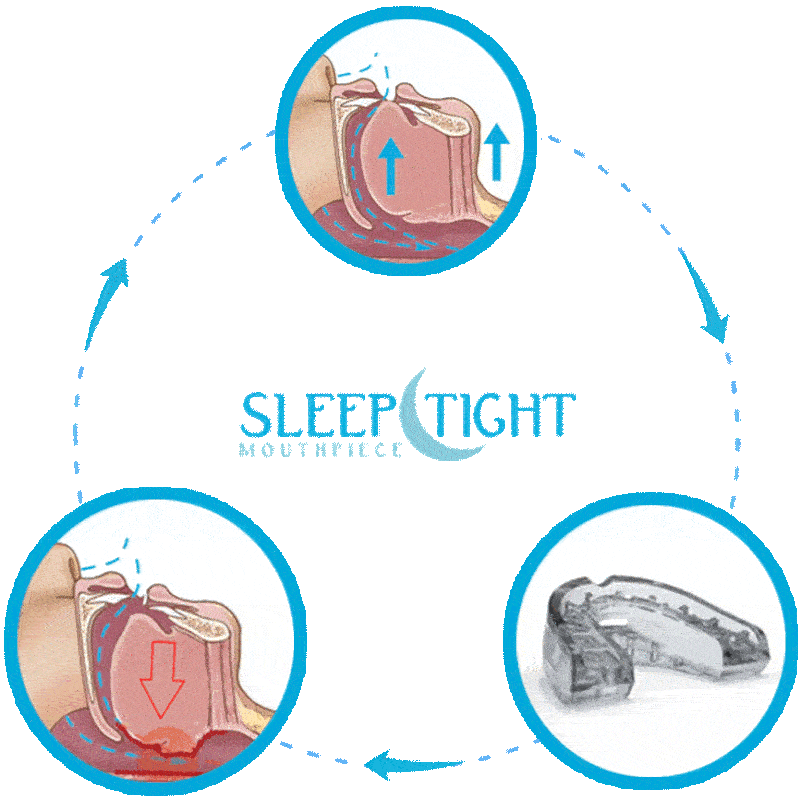Have you ever wondered if lack of sleep could be contributing to those extra pounds you’ve been carrying around? It’s a common question and one that many people have debated over the years. Well, the short answer is yes, lack of sleep can indeed lead to weight gain. But why is that? How does something as seemingly unrelated as sleep affect our weight? In this article, we’ll dive deeper into the topic and explore the connection between sleep deprivation and weight gain.
When you don’t get enough sleep, it can disrupt your body’s natural processes and throw things off balance. One of the key factors at play is your hormones. Lack of sleep can cause an imbalance in the levels of hormones that regulate hunger and satiety, namely ghrelin and leptin. Ghrelin, also known as the “hunger hormone,” increases when you’re sleep-deprived, leading to increased feelings of hunger and cravings for high-calorie foods. On the other hand, leptin, the hormone that signals feelings of fullness, decreases when you’re sleep-deprived. So not only do you feel hungrier, but you also don’t feel as satisfied after eating, which can lead to overeating and ultimately weight gain.
But that’s not all – lack of sleep can also affect your metabolism. When you’re sleep-deprived, your body’s metabolism slows down, making it harder for you to burn calories efficiently. This means that even if you’re eating the same amount of food as usual, your body may not be able to process it as effectively, leading to weight gain over time. Additionally, sleep deprivation can also negatively impact your energy levels and motivation to exercise, making it more difficult to engage in physical activity and burn off those extra calories. So, if you find yourself reaching for unhealthy snacks and skipping your workouts when you’re sleep-deprived, it’s not just in your head – there’s a scientific basis behind it.
In conclusion, there is indeed a strong connection between lack of sleep and weight gain. When you don’t get enough sleep, the hormonal imbalance and metabolic changes that occur can lead to increased hunger, cravings for unhealthy foods, reduced feelings of fullness, slower metabolism, and decreased motivation to exercise. So, if you’re looking to maintain a healthy weight or shed a few pounds, make sure you prioritize your sleep. In our upcoming article, we’ll discuss some tips and strategies for getting better sleep and improving your overall health. Stay tuned!
The Relationship Between Sleep and Weight Gain
Lack of sleep can have detrimental effects on various aspects of our health, including weight management. Research has shown that inadequate sleep can disrupt hormonal balance, increase appetite and food cravings, affect metabolism and caloric burn, and lead to a range of sleep disorders. In this article, we will explore the relationship between sleep and weight gain, delving into the impact of sleep deprivation on hormones, appetite, metabolism, and the consequences of disrupted sleep patterns.
How Lack of Sleep Affects Hormones
One of the key ways in which sleep deprivation can contribute to weight gain is through hormonal changes. Ghrelin, a hormone produced in the stomach, is responsible for regulating appetite and hunger. When sleep-deprived, the body produces higher levels of ghrelin, leading to increased appetite and a greater likelihood of overeating.
On the other hand, leptin, a hormone produced by fat cells, signals the brain when we are full and helps to regulate energy balance. However, lack of sleep can suppress leptin production, making it more difficult for the body to recognize satiety and control food intake. This imbalance of ghrelin and leptin can disrupt the body’s natural appetite regulation process, increasing the risk of overeating and weight gain.
Additionally, sleep deprivation can result in increased production of cortisol, a stress hormone associated with weight management. Elevated levels of cortisol can lead to higher insulin levels, impaired glucose regulation, and an increased storage of fat, particularly around the abdominal area. This can contribute to weight gain and the development of conditions such as obesity and metabolic syndrome.
Impact on Appetite and Food Cravings
Inadequate sleep can also influence our appetite and food cravings. Studies have shown that sleep deprivation can lead to an increased production of ghrelin and a decreased production of leptin, as mentioned earlier. This hormonal imbalance can make individuals more prone to cravings, especially for high-calorie and carbohydrate-rich foods.
When we are sleep-deprived, our brain’s reward center becomes more active, making unhealthy foods seem more appealing and desirable. This can lead to a higher consumption of calorie-dense foods, further exacerbating weight gain. Additionally, lack of sleep can impair the prefrontal cortex, the part of the brain responsible for decision-making and self-control, making it difficult to resist these cravings and make healthier food choices.
Effect on Metabolism and Caloric Burn
Sleep deprivation can negatively affect metabolism and caloric burn, further contributing to weight gain. Studies have shown that inadequate sleep can lower the resting metabolic rate, the number of calories burned at rest. This means that even if you consume the same amount of calories, your body will burn fewer calories throughout the day, potentially leading to weight gain over time.
Additionally, lack of sleep can decrease thermogenesis, the production of heat by the body as a result of metabolic processes. This reduction in thermogenesis can further slow down metabolism and hinder weight loss efforts. Furthermore, sleep deprivation can impair glucose regulation, leading to higher blood sugar levels and an increased risk of developing insulin resistance and type 2 diabetes.
Consequences of Disrupted Sleep Patterns
The relationship between sleep and weight gain goes beyond just the lack of sleep itself. Disrupted sleep patterns, such as those experienced by individuals with sleep disorders like sleep apnea or insomnia, can also contribute to weight gain.
Sleep apnea, a sleep disorder characterized by repetitive pauses in breathing during sleep, has been strongly linked to obesity. The condition can lead to hormonal imbalances, increased appetite, and changes in metabolism, all of which can contribute to weight gain. Similarly, insomnia, a common sleep disorder characterized by difficulty falling asleep or staying asleep, has been associated with weight gain and obesity.
In addition to these sleep disorders, shift work can also have a detrimental effect on weight management. Shift work often involves irregular and disrupted sleep patterns, which can lead to hormonal imbalances and increased food intake during non-traditional hours. The disruption of the body’s internal clock, known as the circadian rhythm, can lead to changes in metabolism and an increased risk of weight gain.
Psychological Factors and Sleep Loss
Beyond the physiological effects, lack of sleep can also have psychological implications that can impact weight management. Sleep deprivation can increase stress levels, leading to emotional eating as a coping mechanism. The combination of hormonal imbalances, increased cravings, and reduced self-control can make it difficult to make healthy food choices and maintain a balanced diet.
Furthermore, sleep loss can also have a negative effect on mood and mental well-being. Chronic sleep deprivation can lead to feelings of irritability, mood swings, and a general state of fatigue. These factors can further contribute to an unhealthy relationship with food, making it more difficult to maintain a healthy weight.
Sleep Duration and Weight Management
The duration of sleep plays a crucial role in weight management. The recommended amount of sleep for adults is generally between 7-9 hours per night. However, individual needs may vary, and it’s important to listen to your body and prioritize quality sleep.
Short sleep duration, defined as consistently getting less than 6 hours of sleep per night, has been associated with weight gain and obesity. Studies have shown that individuals who consistently sleep less tend to consume more calories, particularly from high-fat and high-sugar foods. They also have a higher body mass index (BMI) and an increased risk of obesity compared to those who get adequate sleep.
On the other hand, long sleep duration, typically exceeding 9 or more hours per night, has also been linked to weight gain. While the exact mechanisms behind this relationship are still being investigated, excessive sleep may be a marker for underlying health issues or a sedentary lifestyle, which can contribute to weight gain.
Sleep Quality and Weight Control
Not only is sleep duration important, but the quality of sleep also plays a significant role in weight control. Creating an optimal sleep environment and following sleep hygiene practices can help improve the overall quality of your sleep.
An optimal sleep environment includes a cool, quiet, and dark room that promotes relaxation and reduces external disturbances. It’s also important to establish a consistent sleep schedule by going to bed and waking up at the same time each day, even on weekends. This consistency helps regulate your body’s internal clock and promotes better sleep quality.
Improving sleep quality can also involve making lifestyle changes such as avoiding caffeine and electronic screens before bed, practicing relaxation techniques, and ensuring regular physical activity during the day. Additionally, addressing any underlying sleep-related disorders, such as sleep apnea or insomnia, through medical intervention or therapy can further support weight management efforts.
Preventing Weight Gain with Healthy Sleep Habits
To prevent weight gain and maintain a healthy weight, it’s crucial to prioritize healthy sleep habits. Here are some strategies you can implement:
Establishing a Consistent Sleep Schedule:
Maintain a regular sleep schedule by going to bed and waking up at the same time each day. This helps regulate your body’s internal clock and promotes better sleep quality.
Creating a Relaxing Bedtime Routine:
Develop a calming routine before bed to signal your body that it’s time to sleep. This can involve activities such as reading, taking a warm bath, or practicing relaxation techniques like deep breathing or meditation.
Avoiding Sleep Disruptors:
Identify and eliminate any factors that may be interfering with your sleep, such as noise, light, or electronic screens. Create a sleep-friendly environment that promotes relaxation and helps you fall asleep easier.
Conclusion
Recognizing the importance of adequate sleep is crucial for maintaining a healthy weight. Sleep deprivation can lead to hormonal imbalances, increased appetite and food cravings, a slower metabolism, and a range of sleep-related disorders. By implementing strategies for better sleep and prioritizing healthy sleep habits, you can support weight management efforts and promote overall well-being. Remember, quality sleep is essential for a healthy mind and body.



